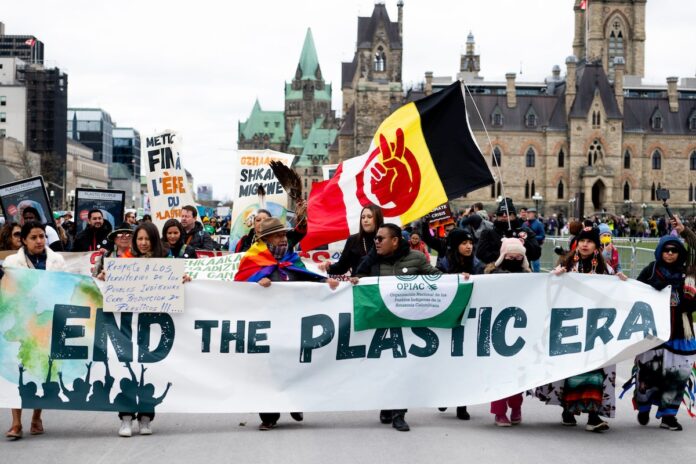“Plastic Pollution: A Global Crisis in the Spotlight”
Plastic pollution has become an omnipresent issue, from contaminating the depths of the ocean with ghost fishing gear to infiltrating human placentas. This week in Ottawa, delegates from 174 countries are convening for the fourth session of the Intergovernmental Negotiating Committee on Plastic Pollution, with the goal of crafting a binding international treaty by 2024. The urgency is palpable as the world grapples with the consequences of unchecked plastic production and waste.
The Stakes at the Negotiating Table
The pressure is on for delegates to agree on terms that regulate the use of plastic in various industries while devising strategies to reduce plastic waste in oceans and landfills. As federal Environment Minister Steven Guilbeault aptly put it, these talks represent a historic opportunity to address the global plastics crisis. Canada, as a founding member of the High Ambition Coalition to End Plastic Pollution, stands at the forefront of this pivotal movement.
Microplastics and the Threat to Ecosystems
The discovery of microplastics in human placentas has underscored the pervasive nature of plastic pollution and the urgent need for action. Researchers are racing to find solutions to prevent these particles from entering the environment and potentially harming living organisms, including humans. The Ottawa talks aim to bring together a diverse group of stakeholders, from government representatives to industry leaders, to tackle this multifaceted problem.
The Call for a Circular Economy Approach
Industry experts like Isabelle Des Chênes advocate for a cradle-to-grave approach that promotes a circular economy for plastics. This approach would incentivize manufacturers to produce reusable products or items with higher recycled content. Non-governmental organizations are urging for mandatory targets that address the entire life cycle of plastics to curb the escalating production and environmental impact of plastic.
A Collaborative Effort for a Sustainable Future
The treaty on plastic pollution necessitates collaborative actions from governments, industries, and NGOs to mitigate the harmful effects of plastic on the environment. While plastic remains essential in various sectors, there is a unanimous agreement that plastic pollution is unacceptable. The focus remains on minimizing plastic waste and ensuring a sustainable future for generations to come.
As the world watches the negotiations unfold in Ottawa, the outcomes of these talks will undoubtedly shape the future of our planet. It is imperative that all stakeholders come together to find meaningful solutions to combat the plastic crisis and preserve the health of our ecosystems. The time for action is now, and the decisions made in these crucial negotiations will determine our legacy on this planet.”
Reference














